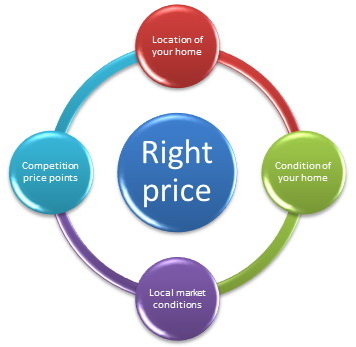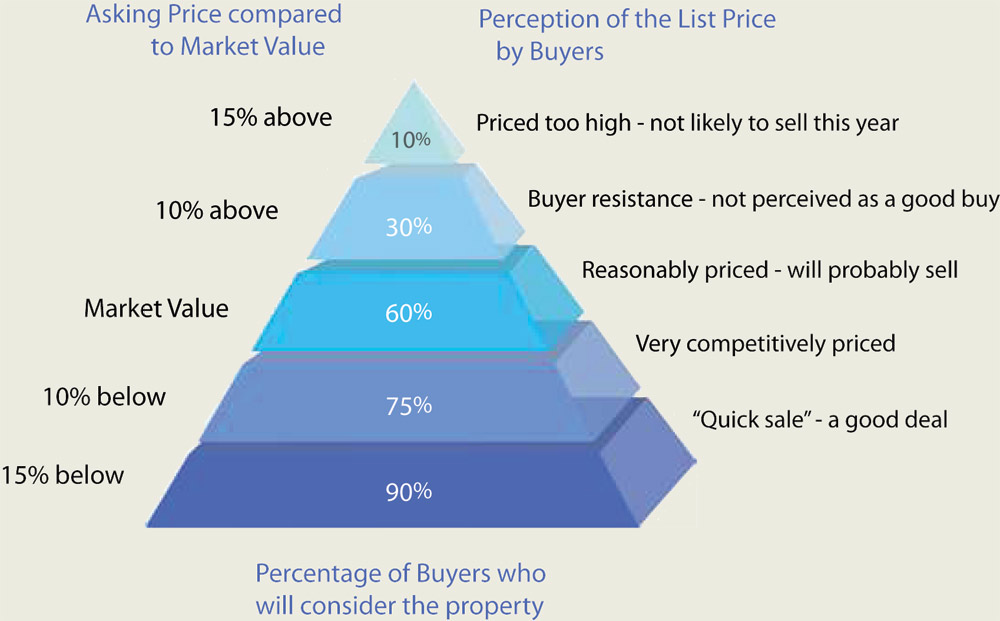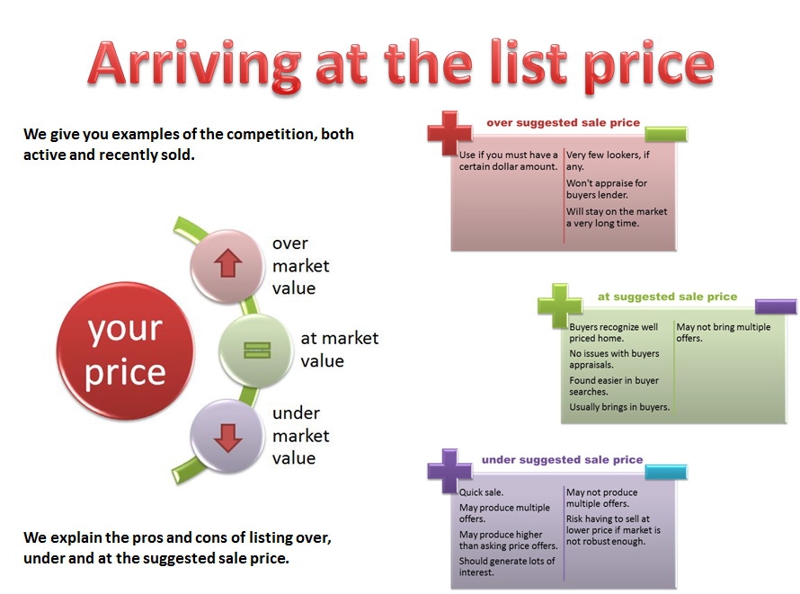How Days On Market (DOM) Affect Home Sales
Days On Market can affect the home sale and indicate an incorrect List Price at the outset. While we are seeing many properties sell in days at, or above asking, there are as many properties that do not sell. Home owners are advised to think carefully when evaluating their Listing Price.
Set The Right List Price
Although it can be tempting to “test the market” by setting a high asking price, it is not the most effective strategy, especially in a hot market like Vancouver. Potential buyers are far more likely to shop for homes that are priced reasonably in relation to the “comps,” homes of similar size, age and amenities in the same or a similar neighbourhood.
Don’t forget that most sales begin online; potential buyers can, with a simple click, navigate away from a specific listing in favour of another that has a more realistic price, more appealing photographs or a more complete description. You want to generate showings in order to prompt offers.
Statistics reflect an increase in sales prices over the last several months, but you have to also consider “Sold” numbers for the past year in relation to “Days on Market” to determine your initial listing price. Additional information to have in your arsenal is the relationship between listing price and selling price, and complete details on current listings.
Setting a listing price is not an exact science, but by arming yourself with the facts, you can make an informed decision and increase your odds for a timely sale.
Some Results of Over – Pricing
Here are just six of the disappointments you’ll find with an overpriced house:
- A buyers’ response to your listing will probably be slow, since they most likely recognize overpricing. Remember, people buy by comparing like homes, and if they are working with a buyer’s agent, the agent is giving them recent statistics.
- Buyers who are interested may be the wrong ones because they’re looking for a home priced the same as yours – but with MORE features. You’ll be missing the buyers who could and/or would buy your house.
- Your overpriced home will help buyers make a decision on other homes that are priced fairly. You’ll be the homeowner that sells your neighbour’s home.
- Very few buyers will even make an offer on an overpriced home. Even in a seller’s market like we see today [low inventory with healthy demand] buyer’s are sensitive to over paying.
- After your house has been on the market for several months, buyers will notice the number of days on market and may assume there is something wrong with your house. After a house becomes “stale” in the psychology of buyers’ thinking, the seller will most likely end up lowering the price to a point less than they could have gotten if they’d priced the home correctly when first listed. This is called chasing the market down.
- If you do find a buyer at your price, the appraisal still has to work; the house has to appraise for the contracted price, or the mortgage lender will not lend the money to the buyer. The contract will have to be re-negotiated to make the deal work.
- What can you do to solve the pricing issue? Work with an experienced real estate agent who knows the market in your neighbourhood. Your agent will provide you with a valuable CMA based on what similar homes have sold for in the recent 3 to 6 months, depending on the dynamics in your market. Take advantage of the research and advice your real estate agent can offer, and you’ll be sure to avoid the pitfalls of an overpriced home.
Days On Market (DOM)
Days on Market is a common statistic found on the Multiple Listing Systems (MLS) and basically tracks how long a home has actually been on the market for sale. Many MLS also keep track of Cumulative Days On Market (CDOM) which is the total days on market a home has been up for sale, that time includes the time on the market with a different agent also in the case where the home was temporarily withdrawn and then put back on the market for whatever reason. Depending on local MLS rules the CDOM number can reset back to zero if the home has been off of the market for 30 days or some other passage of time set by the local MLS Board.
Why Days On Market Matter
The number of Days On Market can affect the sale of your home. DOM provide sellers, buyers and real estate agents an idea of how well a home is being received while it is available for sale. Many issues can affect how long a home sits on the market and therefore the DOM number provides a good measure of how the home is being received.
Ideally the time for a home to get an offer is within the first 30-60 days of being on the market. If the home is on the market for longer than 60 days with no offers the seller and the real estate agent should be revisiting a number of things in order to determine why no offer has come in. The longer a home sits on the market without an offer causes buyers to question if there is something wrong with the home that is causing it not to sell and as a result some buyers may not even consider a home with a longer than normal time on market. This negative perception from buyers can force the sellers to reduce price much faster and steeper than if the marketing and pricing were done properly during the first 30-60 days of the home listing.
Cumulative Days On Market Affect Home Sales.
The CDOM term is mentioned above because sometimes real estate agents may try and game the system by cancelling a listing and then creating a brand new listing a few days later in order to reset the DOM count. While the DOM count is reset upon re-listing an MLS which keeps track of CDOM will not fool anyone since the CDOM number will be reported right alongside the DOM number. If an agent suggests to you that cancelling and re-listing will make it look like your home is new on the market you should begin to question further the agents strategies for getting your home sold.
Now if the home has been pulled off of the market due to some legitimate reason like having to address some emergency repair that pops up while the home is on sale the CDOM is also not reset. There may be perception problems as well with that situation but any experienced agent will know how to get ahead of this problem by properly communicating the fact that the home needed some repair and now is back on the market and even may be better than before with the repairs.
Other Reasons Homes Have Long Days On Market
Another reason why a home may be on the market longer than 60 days is poor marketing. Listing your home on a couple of real estate websites is not enough. You should look at the quality of the photographs for your home, how is your home staged, have you de-cluttered and depersonalized. Marketing is more than just getting the word out there that you have a home for sale.
The amount of time a home spends on the market is looked at by buyers and real estate agents and may even be used as a reason not to consider a home. By pricing your home right and marketing it properly you should expect to have plenty of buyers and an offer in hand within the first 30-60 days of being on the market. If your home has not sold and is starting to spend too much time on the market it may be time to step back and reevaluate your home price and marketing plan.
http://www.petercoppard.com/marketing













